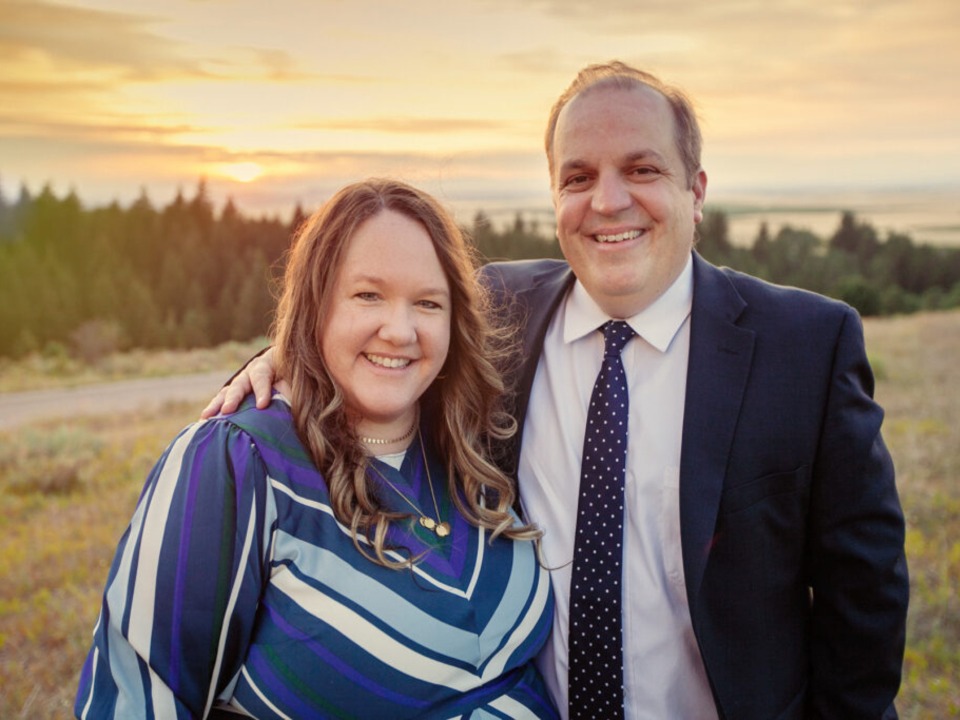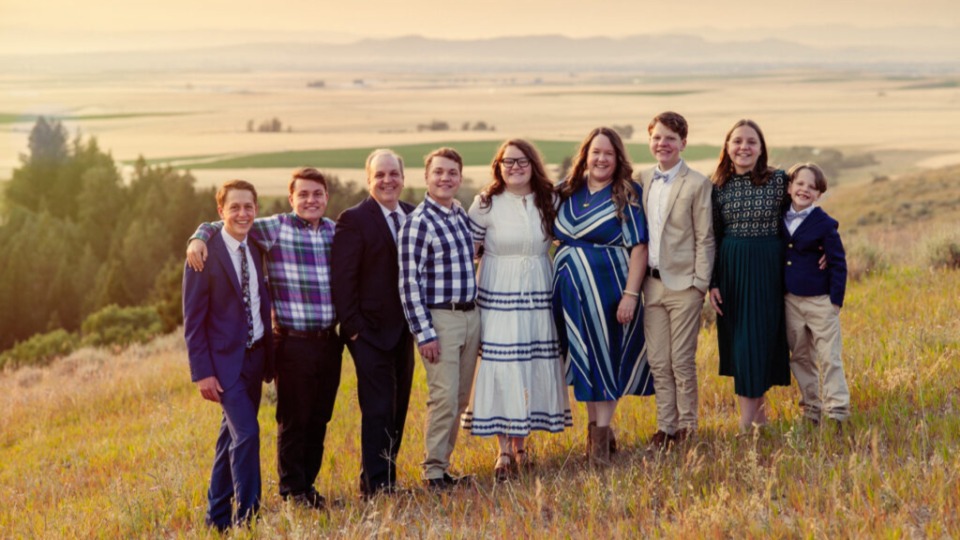
This story appears here courtesy of TheChurchNews.com. It is not for use by other media.
By Megan McKellar, Church News
When Sarah Hafen d’Evegnée and her husband, Eric d’Evegnée, set out to start a podcast about those who return to faith after a period of estrangement, their goal was to find people who had worked through uncertainty and complexity with their testimonies and share their stories.
These efforts began when Sarah’s parents, Sister Marie Hafen and Elder Bruce C. Hafen, an emeritus General Authority Seventy of the Church, published the book “Faith is Not Blind,” which offers resources and tools to work through unexpected questions and complexities and develop an informed testimony.
As BYU–Idaho English professors, they were aware that reading books is becoming less and less common, and so they set out to find a way to make the principles from the book more accessible.
“Eric actually had the idea to take what my parents had talked about … with this pattern that’s based on an Oliver Wendell Holmes quote about getting from simplicity to complexity, to a new kind of even deeper simplicity,” Sarah d’Evegnée said.
One of Sarah d’Evegnée’s learnings from compiling and collecting of stories of people who have left The Church of Jesus Christ of Latter-day Saints and then return to activity in the Church, has been how detrimental black-and-white thinking can be when encountering doubt or questions.
“When they talk about how they expected themselves to be as members of the Church … they talk about it in terms that made it clear that the expectation was they had to be perfect. Otherwise, they couldn’t fit in with the community of God and sometimes didn’t even feel valued by God, unless they did things in a black-and-white way, almost like there was no gray area,” she said. “If they perceived that the only possibility was to leave if they weren’t perfect, or to leave if they had questions, or to leave if they had doubts, then it was almost like a self-fulfilling prophecy where they would leave, and it was because they didn’t see a possibility for staying.”
Another common theme that the d’Evegnées observed throughout the reconversion narratives is the sense of alienation or banishment that individuals felt after leaving the Church.
“It was in every single narrative that we read and it was pervasive,” Eric d’Evegnée said.
A paradigm shift or the receiving of previously unknown information are often the root cause of either deconversion or reconversion — but more influential than the information is the reaction to the information.
“So, on the deconversion side, they might find something out, but it might not actually be the information itself. It was the fact that they didn’t know it that was startling,” Sarah d’Evegnée said.
On the reconversion side, many of the narratives expressed the paradigm-shifting knowledge was that “God loved me anyway,” which led away from a previous black-and-white way of thinking and towards spiritual and cognitive progression.
These moments of realization can sometimes come through a spiritual impression or feeling, and can also come through other people.

“It’s someone interacting with them at the right time who becomes kind of welcoming, or just offers friendship without judgment or anything like that,” Eric d’Evegnée said.
He hopes that their database of reconversion stories opens the door to broaden the discussion of faith.
“There’s more to the story of faith than just simply faith and doubt, that there are different things that people go through, and different challenges that they face,” he said. “I think one of the things this study can do is help us be more compassionate and aware of what other people are going through, and what that can feel like for them to have to deconvert or disaffiliate or some of the struggles that they're having.”
Working on this project has caused Sarah d’Evegnée to reflect on how she deepens and nurtures her own testimony: “Do I have a continual restoration and renewal and reconversion in my own testimony? Am I asking questions that would allow me to plant different seeds, and again, just to grow a whole garden of faith, and allow other people to do the same, not expect that their faith is either on or off, but that we’re all in process?”

The d’Evegnées make deliberate efforts to create an environment in their home where questions are welcome and viewed as normal and part of developing healthy faith. “We’ve noticed in the narrative that a lot of people who had questions didn’t feel like it was OK for them to have them,” Sarah d’Evegnée said.
As Eric d’Evegnée has witnessed how enduring God’s love and His mercy is for His children as they reach out to Him, he has learned what his own role is. “I can’t be upset when people choose paths that are different than my own,” he said. “I know what my job is: That I am going to be loving and merciful, and helping them see, to some extent, some small fraction, a portion of God’s love through the way that I interact with them.”
“Reading these stories has reminded me that we have two things that are eternal, and that is time and love,” Sarah d’Evegnée said. “We have an unlimited supply of those two things … . [God] can teach us how to love people who are in process, and He can teach us how to be patient with them as well, and because we’re in that process, too, we’re all in the same beautiful, continually changing boat of faith together.”
Copyright 2021 Deseret News Publishing Company